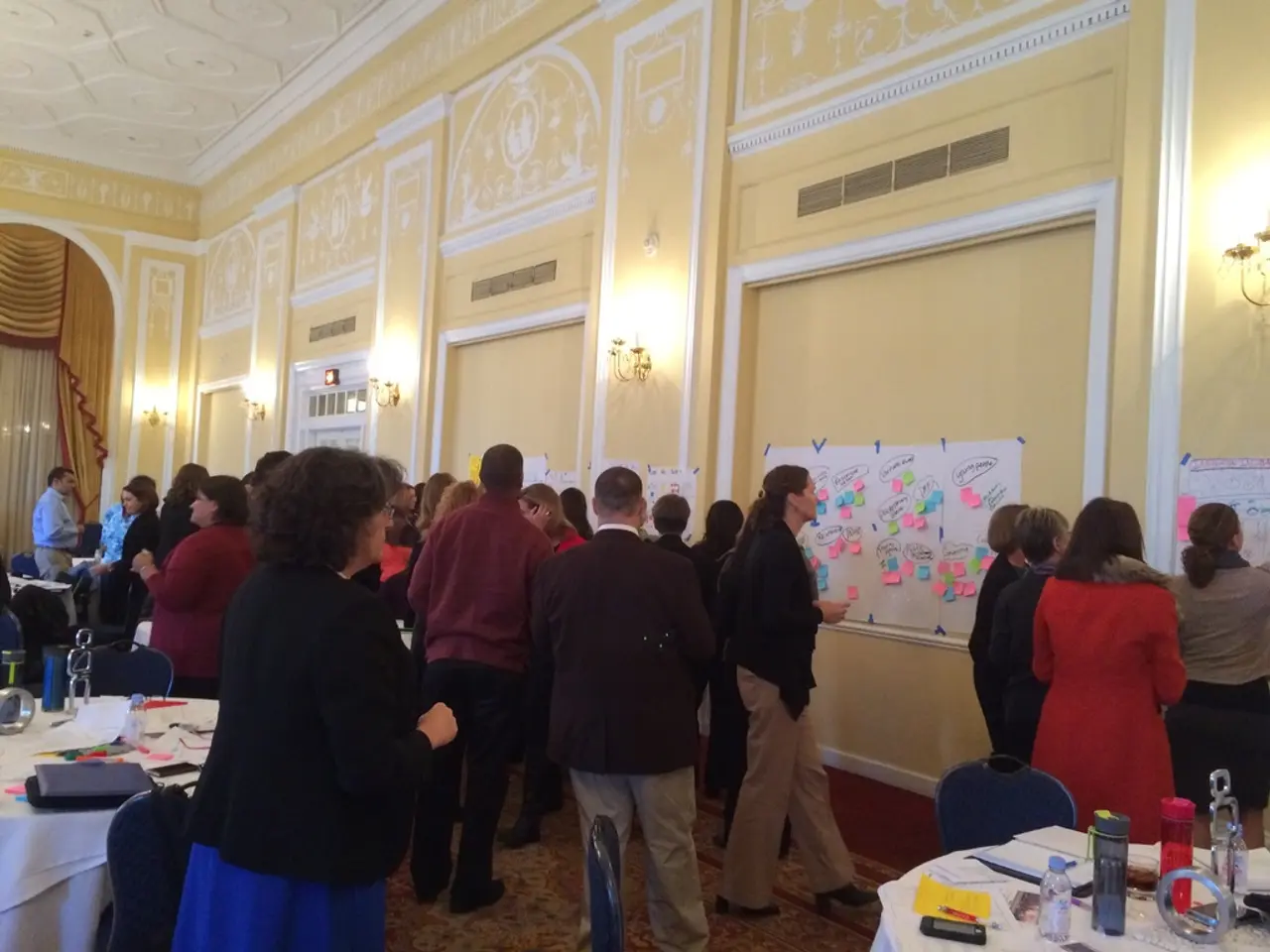Increase in hunger observed across African regions, according to United Nations report
A groundbreaking report, titled "State of Food Security and Nutrition in the World report (SOFI)," has been released, highlighting the urgent need for coordinated and inclusive actions to reduce hunger and improve food security in Africa by 2030.
The continent, despite some global progress, remains the most vulnerable, with projections showing nearly 60% of the chronically undernourished population by 2030 will be in Africa. Over one billion Africans are currently unable to afford a healthy diet, underlining the urgency of these multi-dimensional actions.
Food security organisations have recommended several key areas for focus. These include ending hunger and all forms of malnutrition, especially among vulnerable groups like infants, children under 5, adolescent girls, pregnant and lactating women, and the elderly.
Another crucial area is doubling agricultural productivity and incomes for small-scale food producers, particularly women, indigenous peoples, family farmers, pastoralists, and fishers. This involves securing equal access to land, productive resources, knowledge, financial services, markets, and opportunities to add value or find non-farm employment.
Ensuring sustainable and resilient food production systems is also vital. This includes increasing productivity while maintaining ecosystems and strengthening adaptation capacity to climate change, droughts, floods, and other disasters, as well as improving land and soil quality progressively.
Maintaining genetic diversity of seeds, plants, and animals is another important aspect. This can be achieved through sound management of seed banks and fair access to genetic resources and traditional knowledge.
Investments in rural infrastructure, agricultural research, extension services, technology development, and gene banks, especially in least developed countries, are also crucial, driven by enhanced international cooperation.
Correcting trade restrictions and distortions in world agricultural markets is another key recommendation. This includes eliminating export subsidies and ensuring proper functioning of food commodity markets to reduce extreme price volatility.
Urgent action is needed to reverse the alarming rise in Africa's food insecurity. This includes enhanced funding for emergency food and agricultural assistance, improved conflict resolution, economic stability, and climate shock mitigation.
Conflicts in hotspot areas such as Sudan and the Democratic Republic of Congo have driven people to extreme situations. High interest on debt are taking up 10-25% of public expenditure in many African countries, hindering public expenditure on food.
Nutritionists have urged governments to classify agricultural-food supply chains as essential services and maintain open intra-African trade corridors. Staples form the core of diets for the poorest households, and such increases can undermine food security and nutrition.
Governments are also urged to elevate women's land use and finance rights, a policy that has proven to improve child and maternal health. It is important that more countries focus on becoming self-sufficient, so that many small-scale farmers not only produce, but are able to sell onto markets.
Antonio Guterres, the UN Secretary-General, stated that hunger feeds future instability and undermines peace. Investments would be fundamental if we want to tackle both poverty and hunger in rural areas, according to Lario.
Despite the challenges, there is a glimmer of hope. The percentage and number of people unable to afford a healthy diet has decreased significantly in Asia, Latin America, the Caribbean, North America, and Europe, according to the SOFI report.
However, the gap between global food price inflation and overall inflation peaked in January 2023, and price and income dynamics are now a dominant pathway through which malnutrition, under-nutrition, micro-nutrient deficiency, and diet-related non-communicable diseases persist.
Food security organisations have called for political will, strong public financing, and development plans to achieve food self-sufficiency. Where diets are least affordable, wasting and stunting rates are simultaneously highest, emphasising the importance of these actions.
In conclusion, the fight against hunger and food insecurity in Africa is a complex and multi-faceted challenge. However, with coordinated and inclusive actions focusing on the key areas outlined, it is possible to reduce hunger and improve food security by 2030. The time to act is now.
- The recently published "State of Food Security and Nutrition in the World report (SOFI)" calls for immediate action to decrease hunger and enhance food security in Africa by 2030.
- Africa, despite global advancements, continues to be the most susceptible continent, with nearly 60% of the chronically undernourished population projected to be in Africa by 2030.
- One billion Africans currently cannot afford a nutritious diet, causing alarming urgency for multi-dimensional actions.
- Ending hunger and various forms of malnutrition, especially among vulnerable groups, is a recommended focus area.
- Doubling agricultural productivity and income for small-scale food producers, particularly women, indigenous peoples, and family farmers, is essential.
- Ensuring sustainable and resilient food production systems is crucial, including adapting to climate change and droughts.
- Maintaining genetic diversity of seeds, plants, and animals is another vital aspect.
- Investments in rural infrastructure, agricultural research, extension services, technology, and gene banks are needed, especially in least developed countries.
- Correcting trade restrictions and distortions in world agricultural markets, such as eliminating export subsidies, can help reduce extreme price volatility.
- Enhanced funding for emergency food and agricultural assistance, improved conflict resolution, and economic stability are vital for tackling Africa's rising food insecurity.
- Conflicts in countries like Sudan and the Democratic Republic of Congo drive people to desperate situations, with high debt interest taking up a significant portion of public expenditure in many African nations.
- Nutritionists suggest classifying agricultural-food supply chains as essential services and maintaining open intra-African trade corridors to prevent undermining food security and nutrition.
- Governments are urged to elevate women's land use and finance rights, which have shown improvements in child and maternal health.
- Becoming self-sufficient in food production and having the ability to sell produce on markets is essential for many small-scale farmers.
- The United Nations Secretary-General, Antonio Guterres, emphasizes that hunger contributes to future instability and hinders peace.
- Investments are crucial to alleviate both poverty and hunger in rural areas, according to the SOFI report.
- Despite the challenges, Asia, Latin America, the Caribbean, North America, and Europe have experienced a significant decrease in the number of people unable to afford a healthy diet.
- The gap between global food price inflation and overall inflation peaked in January 2023, making malnutrition, under-nutrition, micro-nutrient deficiency, and diet-related non-communicable diseases more persistent.
- Food security organisations urge political will, strong public financing, and development plans to achieve food self-sufficiency.
- In conclusion, the fight against hunger and food insecurity in Africa requires coordinated and inclusive actions focusing on key areas like those outlined to reduce hunger and improve food security by 2030. Action is needed now.




